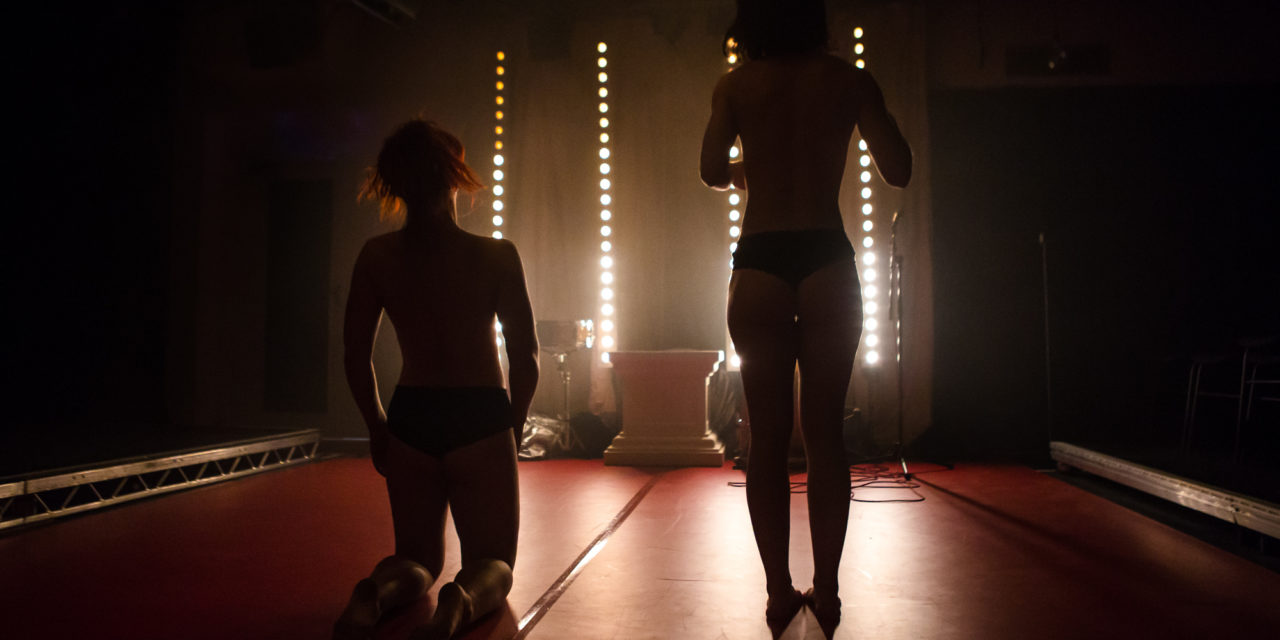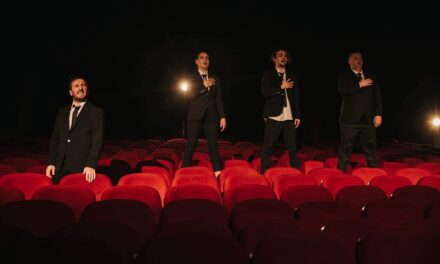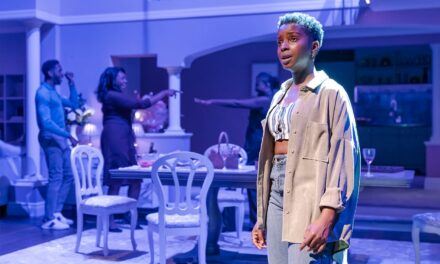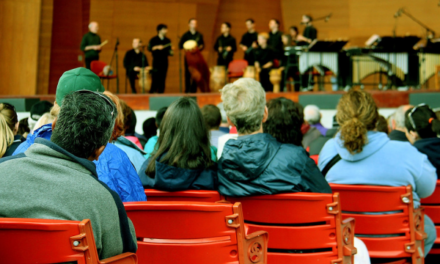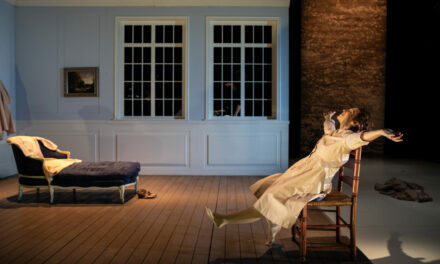Over the last ten years, a new form has evolved on the British stage, rather simply referred to as “gig theatre.” Though one could trace its origins to the tents of the Latitude and Edinburgh Fringe festivals, this year the genre has even reached the Manchester International Festival, prompting speculation of its debt to the dying recorded music industry.
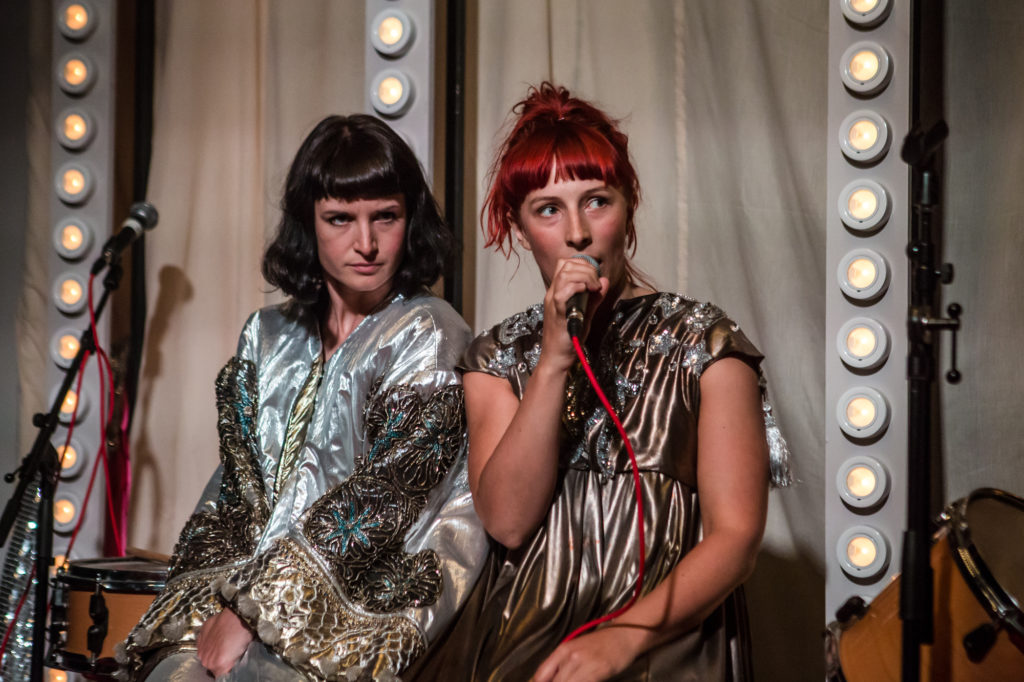
RashDash – Two Man Show 05.08.16 . Summerhall Photo Credit: The Other Richard info@theotherrichard.com
The use of live music in theatre is not so new. Brecht was an early advocate. In the UK, Kneehigh Theatre made it fashionable in the last twenty years, inspired by a mix of Grotowskian and rural English community theatre influences. However, the newest generation of gig theatre-makers is doing something slightly different with it – creating a form where the performers themselves play instruments rather than having an accompanying band on stage, and in this way make music part of the dramaturgical fabric of the piece rather than just a complementary underscore.
Early pioneers of this genre include RashDash, a company of Hull University graduates based in Leeds, led by the female tandem Abbi Greenland and Helen Goalen. Their first show, Another Someone, opened at the Edinburgh Fringe in 2010. It was an ensemble piece about happiness combining original music, movement, and drama on a shoestring budget – a bit messy and rough at the edges but self-assured, refreshing and completely compelling. This won them a following and a tour, and they have moved from strength to strength ever since.
Their latest – Two Man Show – is a co-production with Northern Stage in association with Soho Theatre. It also opened in Edinburgh, in 2016, and is on the road again for the third time with plenty of mileage left in it. In theatre terms, Two Man Show is a ground-breaking marvel on many levels. Style-wise, what originally might have seemed a fusion of talent and skills picked up from a university drama department (a bit of acting, a bit of movement, a bit of playwriting, a bit of research, a bit of music) has been refined into a distinctive and authentic performance idiom. Greenland and Goalen make no excuses for their bold artistic choices: the fact that this show has resulted in a script published by Oberon with only RashDash credited as its author, or the meshing of the visceral and the intellectual throughout the piece, or the deliberately stark juxtapositions of the heard and the seen. Slowly but surely it pushes at the boundaries of what has been deemed possible within any particular performance genre. There are moments in this show that will make a lasting impression on the audience in a way that resists mere verbalization. (Interestingly too, impossibility of verbalization is one of the show’s own main themes). It is a work that needs to be experienced.
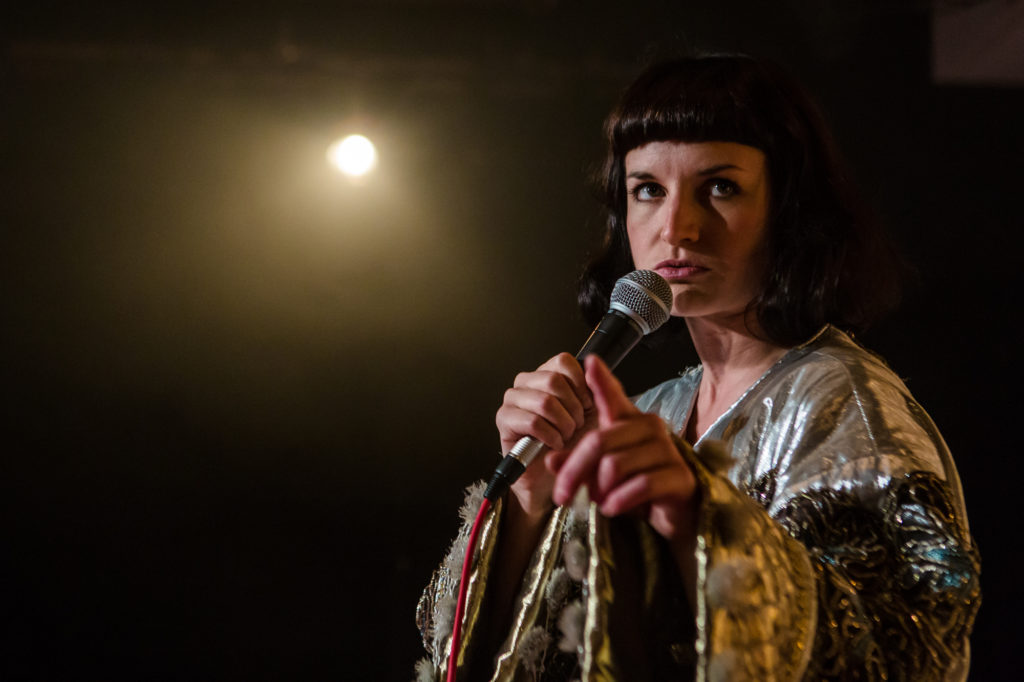
RashDash – Two Man Show 05.08.16 . Summerhall Photo Credit: The Other Richard info@theotherrichard.com
In very basic terms, this is a piece about patriarchy and its effects on gender in its various manifestations. To begin with, the two women, accompanied by musician Becky Wilkie, revisit the ancient history of gender anthropology to frame a sequence of dramatic scenes in which they play John and Dan, two brothers faced with caring responsibilities of different kinds. The delivery is punctuated with musical interludes, the percussion instruments on stage and mics with various filters serving as indispensable props. Utter conviction and artistic rigor underlie this work that could, on its face, be mistaken for trendy posturing. This is by no means just another piece of feminist activism. Greenland and Goalen shed real sweat as they dig for answers. They strip themselves–literally–of all possible layers to get to the heart of the matter. The results are striking: explicitly female bodies displaying masculine strength and gait, evocative and often entertaining characterizations deliberately devoid of any attempt at naturalism. In the first scene concerning the brothers, the women are wearing evening gowns and sitting quietly throughout what sounds like a dynamic encounter. Later, they will play out fraternal fights at a funeral, wearing nothing but boxer shorts. The atmosphere is thick with irony, anticipation, hard work, vulnerability, brutal honesty and occasional mischief, not to mention the customary immersive vibe of a live music gig. At Soho Theatre, it is still a relatively intimate encounter for less than a 100 audience members at a time, but RashDash are true rock stars of British theatre, and you should get up close while you still can.
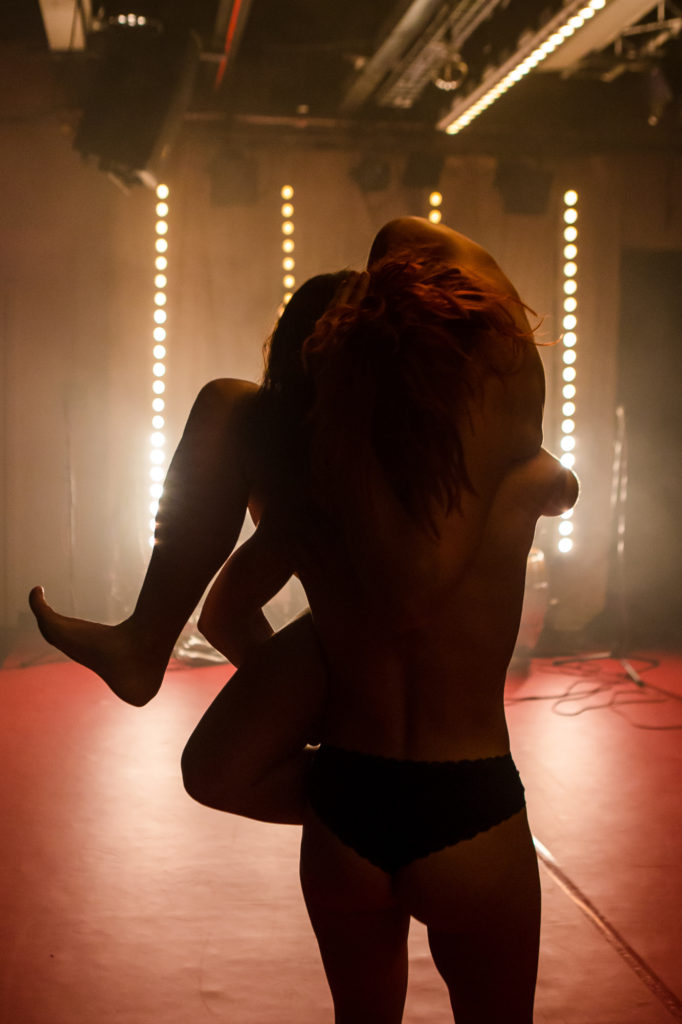
RashDash – Two Man Show 05.08.16. Summerhall Photo Credit: The Other Richard info@theotherrichard.com
13 September–21 October 2017, then touring
Created and performed by RashDash and Becky Wilkie
Written by Abbi Greenland and Helen Goalen
Music by Becky Wilkie
Lyrics by RashDash and Beckie Wilkie
Designer Oliver Townsend
Lighting Designer Katharine Williams
Stage Manager Simon Perkins
Producer Charlotte Bennett
Exhibition Designers Elisa Nader and Rosie Gibbons
This post was written by the author in their personal capacity.The opinions expressed in this article are the author’s own and do not reflect the view of The Theatre Times, their staff or collaborators.
This post was written by Duška Radosavljević.
The views expressed here belong to the author and do not necessarily reflect our views and opinions.

